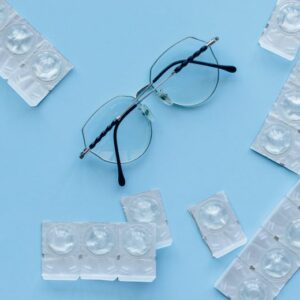
By: Amanda Froelich,
In the attempt to lose weight or adopt healthier habits, have you, like many, fallen for the trap of artificial sweeteners? Nutritional blasphemy of natural sugars has supported the booming diet industry which promotes ‘low fat’ and ‘low carbohydrate’ food options. What many do not know, however, is that in exchange of wholesome food ingredients, chemicals and toxic sweeteners are instead used to create the flavor in processed food.
While regulated and deemed ‘safe’ by the FDA, many health advocates disagree. Food additives like Yellow #5, Red #40, and MSG have many documented health risks; In addition, the following artificial sweeteners also have many reasons to be avoided.
1. Aspartame
What’s in it: Phenylalanine, Aspartic Acid, and Methanol
Reported Side Effects: Headaches, fibromyalgia, anxiety, memory loss, arthritis, abdominal pain, nausea, depression, heart palpitations, irritable bowel syndrome, seizures, neurological disorders, vision problems, brain tumors, and weight gain.
Concerns: Phenylalanine and aspartic acid directly impact brain and central nervous system functions; evidence shows they play a role in mood disorders, memory problems, and other neurological illnesses.
Methanol is converted into formaldehyde when metabolized. Makers of aspartame say methanol and its byproducts are quickly excreted. However, research has found measurable amounts of formaldehyde in the livers, kidneys, and brains of test subjects after ingestion of aspartame.
At high temperatures, phenylalanine breaks down into diketopiperazine (DPK), a known carcinogen. Phenylalanine is especially dangerous for people with the hereditary disease, phenylketonuria.
2. Acesulfame-K
What’s in it: Acesulfame-K is a potassium salt containing methylene chloride, a known carcinogen.
Reported Side Effects: Long term exposure to methylene chloride can cause nausea, headaches, mood problems, impairment of the liver and kidneys, problems with eyesight and possibly cancer. Acesulfame-K may contribute to hypoglycemia.
Concerns: Of all artificial sweeteners, Acesulfame-K has undergone the least scientific scrutiny. Early studies showed a potential link between the sweetener and development of multiple cancers in laboratory animals.
3. Sucralose
What’s in it: Sucralose is a synthetic additive created by chlorinating sugar. Manufacturers say the chlorine in sucralose is not different from that in table salt. However, it’s a fact that the chemical structure of the chlorine in sucralose is almost the same as that in the now-banned pesticide DDT.
Reported Side Effects: Head and muscle aches, stomach cramps, diarrhea, bladder issues, skin irritation, dizziness, and inflammation.
Concerns: Research has shown sucralose can cause shrinking of the thymus gland, an important immune system regulator, and liver and kidney dysfunction. A recent study by Duke University found sucralose reduces healthy intestinal bacteria, which are needed for proper digestion and can impact the effectiveness of prescription and other drugs.
4. Saccharin
What in it: Saccharin is a sulfa-based sweetener; its primary ingredient is benzoic acid sulfimide.
Reported Side Effects: For those with sulfa allergies, saccharin may cause nausea, diarrhea, skin problems, or other allergy-related symptoms.
Concerns: Early safety studies of saccharin showed the sweetener caused bladder cancer in rats. The FDA recently lifted the requirement that saccharin be labeled as a probable carcinogen on food packaging.
The link between saccharin and bladder cancer has contributed to saccharin being the most investigated of all artificial sweeteners. To date, no connection between saccharin and bladder cancer in humans has been proven.
By following a balanced diet full of fresh, unprocessed fruits, vegetables, gluten-free grains, nuts, seeds, and legumes, you’ll find weight maintenance and better health is easy to obtain.
When craving sweetener, try dates, raisins, (local and organic) raw honey, maple syrup, or even agave nectar. Natural sweeteners offer health benefits, taste delicious, and will support your journey into better health.
Additional Sources:


